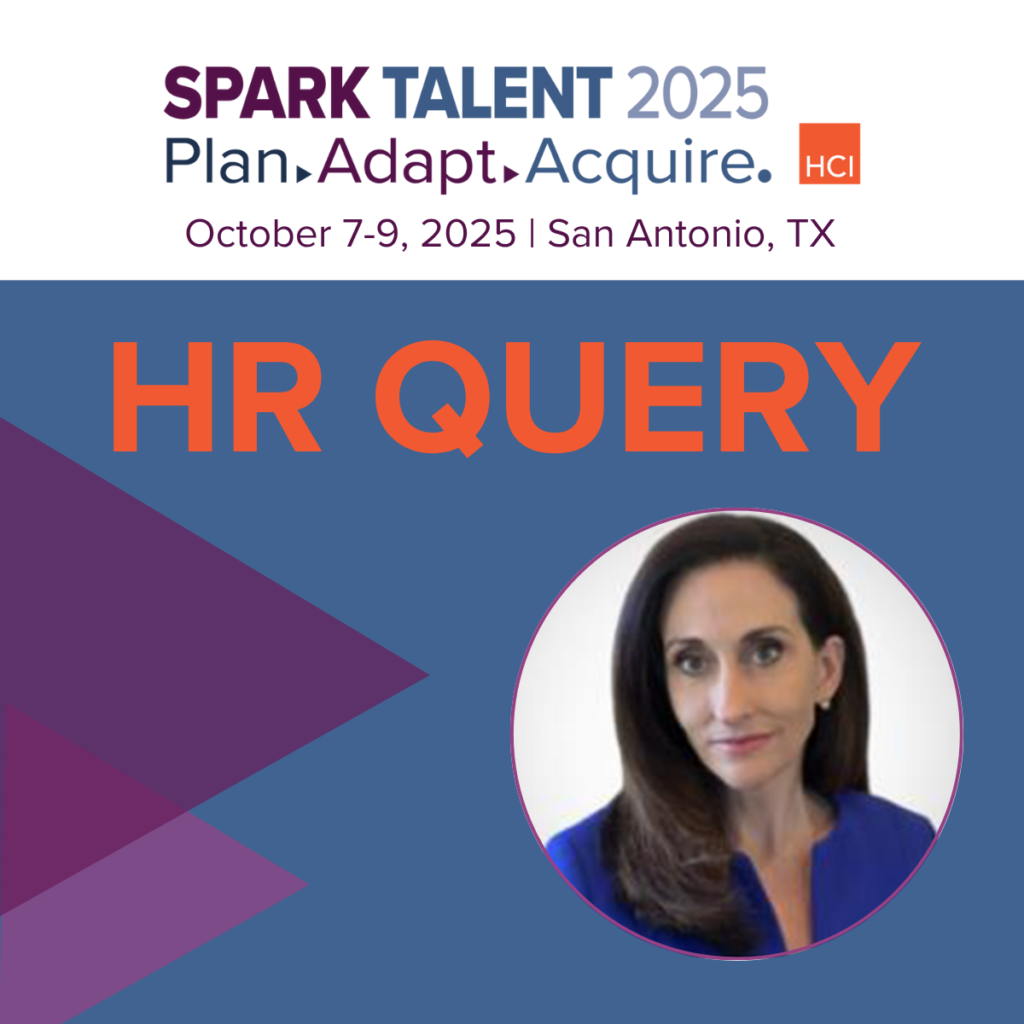Forget what you think about AI in HR. According to Jen Kirkwood, CEO & Founder of Talvana Consulting, and a speaker at SPARK Talent 2025, generative AI isn’t just changing talent acquisition—it’s flipping it on its head. This isn’t a future trend; it’s the urgent present, and HR’s role is critical.
For years, HR’s journey has evolved from manual processes to data quests. Now, generative AI is here, not just to filter résumés, but to transform how we connect with talent. Kirkwood emphasizes that this shift moves talent acquisition from “transactional filtering to dynamic, context-rich storytelling.” It’s about empowering HR and talent leaders to build deeper, richer experiences with candidates at scale, moving beyond small pilot programs to real, measurable impact.
HR’s Urgent Call: Don’t Wait, Lead!
One of the biggest misconceptions HR leaders have right now? That they have time to wait and see. Kirkwood warns against this “wait and see” approach:
“I think that waiting is what is giving that tremendous pause and that tremendous fear to senior leaders that they’re not going to get on board, that they’re not going to look for that opportunity… And that wait and see approach is creating that type of angst with senior leaders where they think, you know what? We don’t need HR.”
This is a stark warning. The risk of inaction isn’t just falling behind; it’s HR being sidelined. Kirkwood’s message is clear: HR must lean in, safely explore, and become the organization’s “lighthouse” guiding AI adoption. While AI can offload tasks, human oversight in HR is irreplaceable due to the inherent risks and complexities. Partnering with IT, legal, and compliance is no longer optional—it’s essential for survival and relevance.
Your HR Action Plan:
- Act Now: Don’t view AI as a distant future project. Start experimenting with small, manageable AI initiatives today.
- Be the Guide: Position HR as the crucial voice for ethical and responsible AI use within your organization.
- Build Bridges: Actively seek partnerships with IT and legal from the very beginning of any AI discussion.
Strategy First: Solve Problems, Not Just Deploy Tech
Too often, organizations get caught up in the technology itself rather than the core business problem they’re trying to solve. Kirkwood highlights that the focus should always be on building a “talent magnet” culture, driving engagement, and improving the candidate experience, which ultimately boosts sales and shareholder value.
She offers a compelling example:
A retailer used generative AI to personalize job invitations based on past roles and social cues. The result? A 32% increase in engagement among hourly workers and an unexpected boost in brand perception. This wasn’t a “soft dollar” gain; it was a measurable impact in a tough, tight-margin business. The key was quick deployment and minimal change management needed for the tech itself, focusing on the “why” and the problem they were solving.
Your HR Action Plan:
- Problem-First: Before looking at any AI tool, clearly define the HR or business problem you want to solve (e.g., reducing turnover, improving feedback, speeding up hiring).
- Aim for Real ROI: Look for AI applications that can deliver “hard dollar” ROI, like increased engagement or reduced attrition, not just vague improvements.
- Get Creative with Current Tools: Don’t assume you need expensive new platforms. Explore how generative AI can enhance your current HR systems to achieve new outcomes.
Talent Acquisition’s Edge: Master Ethical AI
In this AI-driven era, recruiters are facing new challenges—like savvy candidates using AI bots to “beat the box” on applications. To combat this and build trust, Kirkwood says recruiters need to master the principles of responsible AI:
“A recruiter or talent acquisition leader should master an understanding of what it takes to build responsible AI? What is explainability? What is trustworthiness? What is accountability in terms of AI?”
Understanding these principles allows recruiters to build trust with candidates by explaining how AI models are built and what factors they consider. This transparency is crucial. Kikrwood cited a healthcare organization that removed gender-biased language from job descriptions, leading to a significant increase in qualified women applying for technical roles.
Your HR Action Plan:
- Upskill Your Team: Invest in training for your recruiters on responsible AI, explainability, and bias detection.
- Be Transparent: Be ready to explain to candidates how AI is used in your hiring process to build trust and fairness.
- Build Smarter Defenses: Understand how candidates might try to game AI systems and build more robust, ethical processes to prevent it.
The Path to HR’s Strategic Future
Kirkwood emphasizes that the opportunity for HR to be truly strategic, to become “people executives” focused on culture, coaching, and engagement, is “right within reach.” This isn’t just about using new tools; it’s about HR professionals stepping into an essential role as a guide and leader in the AI age. By leaning in, prioritizing problems over platforms, and understanding responsible AI, HR leaders can secure their vital place at the heart of their organization’s success.
Join us live in San Antonio at SPARK TALENT 2025 and get practical strategies focusing on workforce planning, talent acquisition, and AI-driven processes! Discover proven solutions from top HR thought leaders from PepsiCo, Walmart, Staples, The Coca-Cola Company, Marriott, and GE HealthCare, and get ready to adapt your talent strategy for the future.




